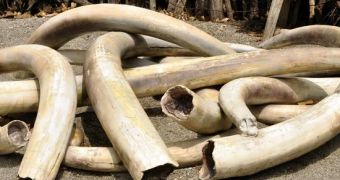Yesterday, US Secretary of State John Kerry made history when he announced that the country was to offer a $1 million (€0.74 million) reward to whomever helped authorities locate and arrest a group of poachers.
The reward is the first of its kind to have ever been offered in the US, and the fact that it amounts to said sum goes to prove that the country was serious when it said that it would go to extreme lengths to end the slaughter of endangered species such as elephants and rhinos.
As detailed on the official website for the US Department of State, the reward targets a group of poachers and wildlife traffickers best known as the Xaysavang network.
The group is believed to be based in Laos, yet information collected by authorities indicates that the poachers are also active in South Africa, Mozambique, Thailand, Malaysia, Vietnam and China.
“The Department of State is offering a reward of up to $1 million for information leading to the dismantling of the Xaysavang Network,” reads the press release on this matter.
Furthermore, “Based in Laos – with affiliates in South Africa, Mozambique, Thailand, Malaysia, Vietnam, and China – the Xaysavang Network facilitates the killing of endangered elephants, rhinos, and other species for products such as ivory.”
Secretary of State John Kerry also said that, although some might think that poaching and the illegal wildlife trade only harms biodiversity, this is by no means the case. On the contrary, this trade constitutes a threat to international security, and also supports other illegal activities.
“The involvement of sophisticated transnational criminal organizations in wildlife trafficking perpetuates corruption, threatens the rule of law and border security in fragile regions, and destabilizes communities that depend on wildlife for biodiversity and eco-tourism,” John Kerry says.
“Profits from wildlife trafficking, estimated at $8–10 billion per year, fund other illicit activities such as narcotics, arms, and human trafficking,” he adds.

 14 DAY TRIAL //
14 DAY TRIAL //